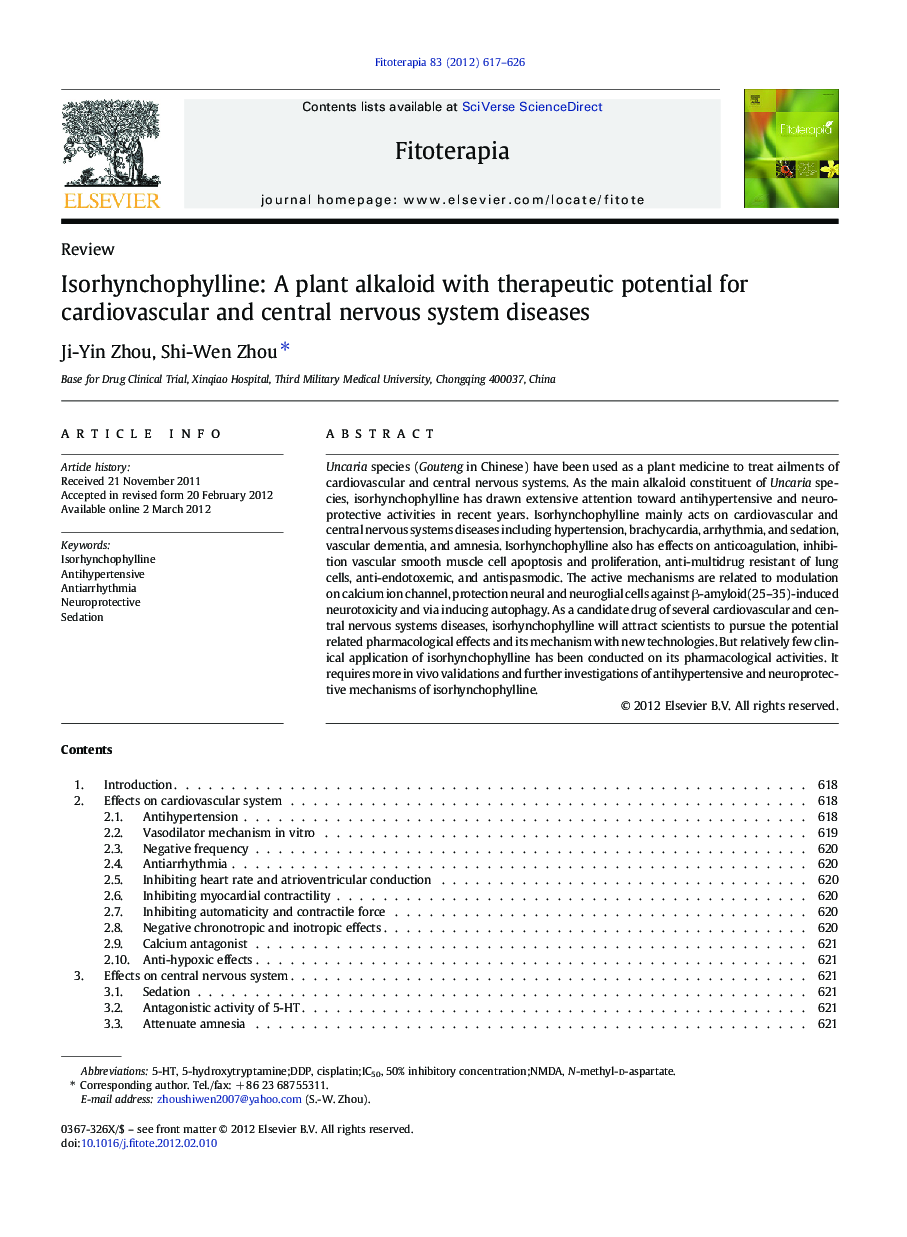| کد مقاله | کد نشریه | سال انتشار | مقاله انگلیسی | نسخه تمام متن |
|---|---|---|---|---|
| 2538771 | 1122154 | 2012 | 10 صفحه PDF | دانلود رایگان |

Uncaria species (Gouteng in Chinese) have been used as a plant medicine to treat ailments of cardiovascular and central nervous systems. As the main alkaloid constituent of Uncaria species, isorhynchophylline has drawn extensive attention toward antihypertensive and neuroprotective activities in recent years. Isorhynchophylline mainly acts on cardiovascular and central nervous systems diseases including hypertension, brachycardia, arrhythmia, and sedation, vascular dementia, and amnesia. Isorhynchophylline also has effects on anticoagulation, inhibition vascular smooth muscle cell apoptosis and proliferation, anti-multidrug resistant of lung cells, anti-endotoxemic, and antispasmodic. The active mechanisms are related to modulation on calcium ion channel, protection neural and neuroglial cells against β-amyloid(25–35)-induced neurotoxicity and via inducing autophagy. As a candidate drug of several cardiovascular and central nervous systems diseases, isorhynchophylline will attract scientists to pursue the potential related pharmacological effects and its mechanism with new technologies. But relatively few clinical application of isorhynchophylline has been conducted on its pharmacological activities. It requires more in vivo validations and further investigations of antihypertensive and neuroprotective mechanisms of isorhynchophylline.
Isorhynchophylline mainly acts on cardiovascular and central nervous systems diseases by calcium channel modulation, neural and neuroglial cells protection.Figure optionsDownload high-quality image (391 K)Download as PowerPoint slide
Journal: Fitoterapia - Volume 83, Issue 4, June 2012, Pages 617–626